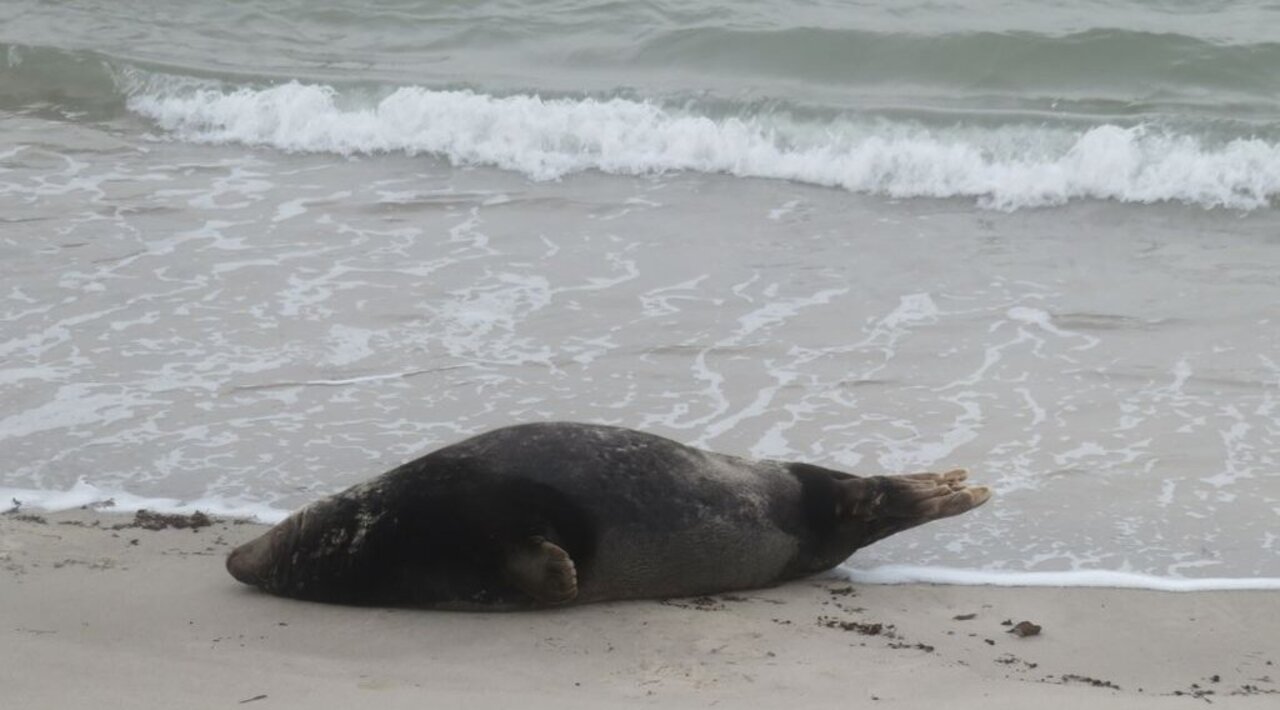Project
Return of the grey seal

Promoting acceptance of a process to develop a Seal-Fishery Conflict Management Plan for the coastal waters of the German Baltic Sea
As pleasing as the return of the gray seals is from a nature conservation perspective, it poses major challenges for artisanal coastal fisheries. A planned conflict management plan in M-V is intended to achieve peaceful coexistence between gray seals and fishermen. But how does this look like?
Background and Objective
Grey seals were long considered extinct on the German Baltic coast. Since 2005, grey seals have again been sighted regularly on the coasts of Mecklenburg-Vorpommern and their population is increasing rapidly. With the return of the protected grey seals, small-scale coastal fisheries face new challenges. On the one hand, the grey seals eat fish that have already been caught from the fishing nets or eat them. Retrieving the remaining fish from the net is time-consuming work. Also, the nets are partially destroyed by the grey seals and have to be mended. On the other hand, by-catches of grey seals must be avoided.
At the instigation of environmental protection associations and the fishery, a participatory process was initiated with the aim of developing a seal management plan. The present project "Return of the Grey Seals" is intended to add a socio-scientific dimension to the development of the seal management plan and focuses on the people (stakeholders) involved in the process.
Approach
Through participatory observation, interviews and seminars, we create opportunities that allow the stakeholders involved to express their viewpoints while listening to the viewpoints of other stakeholders. Reflecting on different points of view creates a common understanding of each other's situation and problems and serves to increase acceptance. Developing a common vision directs the focus to commonalities - as opposed to focusing on antagonistic viewpoints - and lays the groundwork for identifying future paths of a possible future for fisheries and grey seal coexistence.
Thünen-Contact

Involved Thünen-Partners
Funding Body
-
German Federal Environmental Foundation (DBU)
(national, öffentlich)
Duration
2.2022 - 7.2023
More Information
Project funding number: 35468/01
Project status:
finished
Publications
- 0
Ferretti J (2021) Elemente erfolgreicher Prozesse im Umgang mit Mensch-Wildtier-Interaktionen : Empfehlungen für die Prozessgestaltung zur Erstellung eines Konfliktmanagementplans Fischerei-Kegelrobben Mecklenburg-Vorpommern. Braunschweig: Johann Heinrich von Thünen-Institut, 80 p, Thünen Working Paper 164, DOI:10.3220/WP1610530852000

![[Translate to English:] [Translate to English:]](/media/_processed_/d/7/csm_Startseite-OF_03_c0dfd6e750.png)
![[Translate to English:] [Translate to English:]](/media/_processed_/a/3/csm_20181116-151457-Stella-Jerome-Fischfalle-Warnem%C3%BCnde-Dorsche-im-Netzk%C3%A4fig-5691_heller_3050c72fa2.png)





